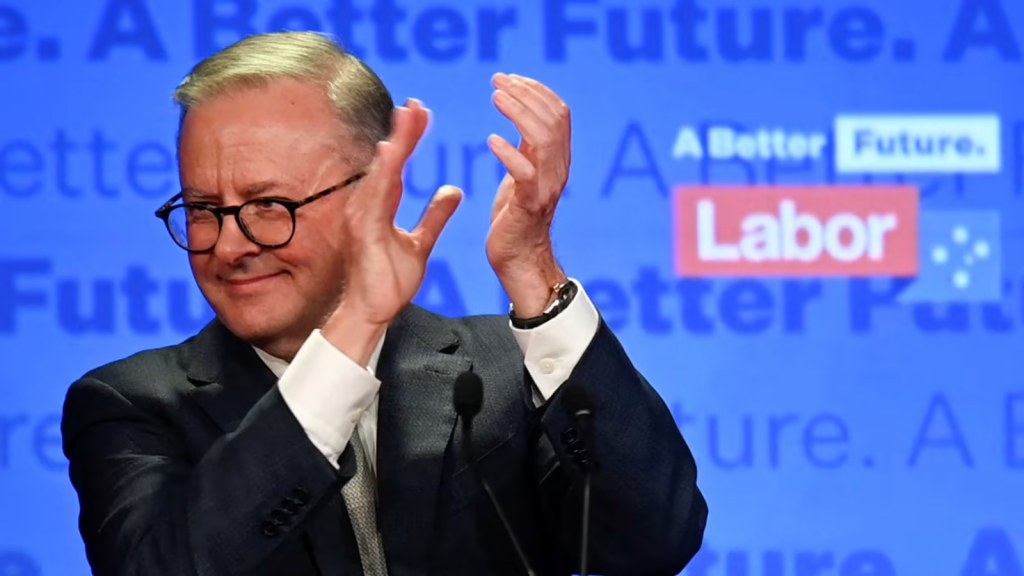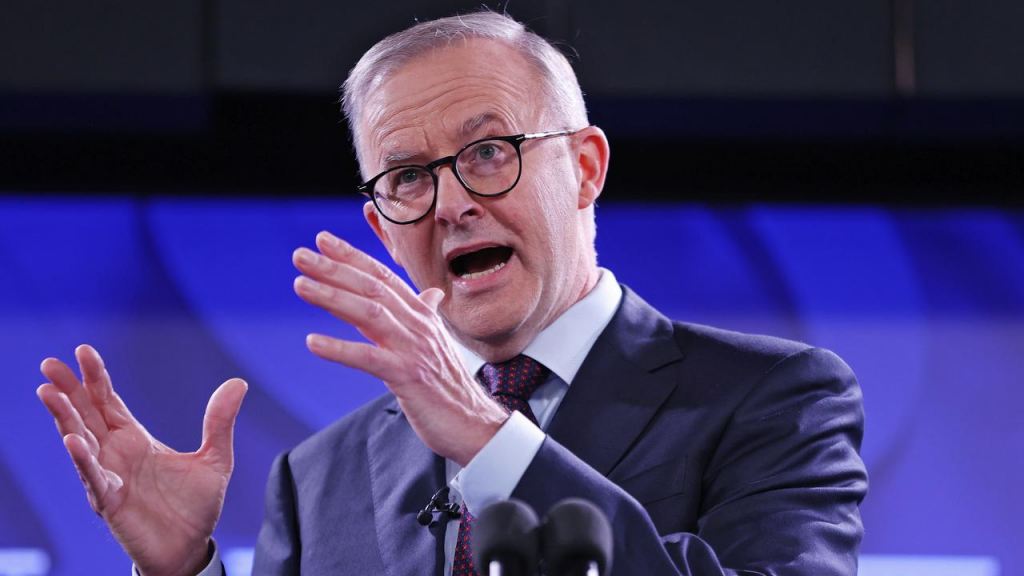As 2024 draws to a close, Prime Minister Anthony Albanese of Australia finds himself at a critical juncture, facing both domestic and international challenges while trying to steer the country towards a future he envisions as more equitable, sustainable, and globally engaged. His leadership, marked by a blend of policy initiatives and political maneuvers, reflects a government grappling with the realities of contemporary governance.
Economic Stewardship and Social Reforms

Albanese’s tenure has been characterized by significant economic policies aimed at addressing the cost of living, housing affordability, and economic recovery post-COVID:
- Tax Cuts and Relief Measures: Notable among these are the adjustments to stage three tax cuts which Albanese described as a move towards fairness, despite criticisms of breaking election promises. The relief package included energy bill relief, cheaper child care, and an expansion of bulk billing to ease healthcare costs.
- Housing: Recognizing the acute housing crisis, Albanese’s government introduced a series of reforms aimed at increasing housing supply and affordability, though these efforts have faced scrutiny over their effectiveness and implementation speed.
- Future Made in Australia: This initiative, announced in 2024, aims to bolster Australia’s manufacturing and energy sectors, focusing on clean energy and critical minerals. While applauded for its long-term vision, it has also triggered debates among economists about government intervention in the market.
International Relations and Diplomacy

Albanese has been active on the international stage, seeking to balance Australia’s strategic interests with its global responsibilities:
- Pacific Engagement: His government has worked to deepen ties with Pacific nations, exemplified by support for the Solomon Islands Police Force, aiming to counterbalance China’s influence in the region.
- AUKUS and Defence: While navigating the complexities of the AUKUS pact and the ongoing debate about nuclear submarines, Albanese has had to manage the potential implications of a Trump presidency on this alliance, showcasing both resilience and diplomatic agility.
- Climate and Energy: Albanese’s commitment to climate action has been tested, particularly in international forums, where he’s pushed for stronger global cooperation on climate change, despite domestic challenges in meeting emission targets.
Political Challenges and Public Perception

The year has not been without political turbulence for Albanese:
- Indigenous Voice Referendum: The defeat of the Indigenous Voice to Parliament referendum was a significant setback, reflecting public and political division on issues of reconciliation and representation.
- Voter Confidence: Surveys indicate a decline in public confidence in his government, with only 38.5% feeling confident by January 2024. This has been attributed to economic pressures, immigration policies, and perceived policy failures.
- Election Strategy: With an election looming, Albanese has been accused of shifting focus towards populist policies to regain voter support, including a controversial social media ban for minors, which critics argue might be more about political optics than practical solutions.
Controversies and Criticisms

Albanese’s leadership style and decisions have not been without controversy:
- Immigration and Border Policies: His government’s approach to immigration, particularly the handling of asylum seekers, has drawn criticism for lacking compassion or innovative solutions.
- Personal Critique: Public and political commentators have questioned Albanese’s effectiveness, with some describing his government as “underwhelming” and suggesting he struggles with major policy challenges.
- Media and Public Perception: His personal popularity has seen fluctuations, with some notable media gaffes and perceived aloofness in public engagements being highlighted by opponents.
Looking Forward
As we move into 2025, Anthony Albanese faces the dual challenge of managing a government in a complex global environment while reconnecting with an electorate that feels the pinch of economic and social pressures. His ability to adapt, communicate effectively, and deliver on his promises will be crucial. With political adversaries like Peter Dutton and the rise of alternative parties like Reform UK influencing the political discourse, Albanese’s leadership will be tested on multiple fronts.
His legacy, still in the making, will depend on navigating these choppy waters with strategic foresight, genuine engagement with the public’s concerns, and a clear vision for Australia’s place in a rapidly changing world.




